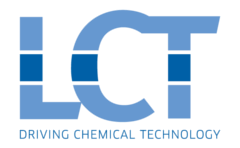First principles based kinetic modeling of plastic waste chemical recycling
Aim
The aim of this work is to develop a program that can automatically generate kinetic models for plastic waste chemical recycling using a 3D representation of species.
Context
Accurate chemical kinetic models are extremely powerful and valuable. Many significant public policy and business decisions are and have been made on the basis of predictions using detailed kinetic models. However, for most technologically important systems, including combustion, pyrolysis, and partial oxidation of hetero atomic mixtures, constructing a reliable and sizable kinetic model remains to be very difficult and time consuming. Such models contain typically thousands of reactions involving hundreds of intermediates with only a small fraction of the reaction rate coefficients known experimentally. Moreover, it is usually impossible to measure the concentrations of all the kinetically significant chemical species.
Automatic network generation technology is a branch of chemical engineering involving many cross disciplinary concepts from other engineering domains, such as chemo-informatics, Boolean algebra, graph and network theory, algorithms, software architecture and design etc. In most cases chemical species are represented as graphs consisting of nodes (atoms) and edges (bonds) allowing the use of many powerful graph algorithms. Genesys is a recently developed automatic network generation code build on advanced open-source chemo-informatics libraries. Genesys is not constrained to specific chemical elements or to specific chemistries. Genesys makes use of an efficient way of calculating on-the-fly species properties and reaction kinetics is by implementing fast estimation methods such as group additivity, Evans-Polanyi and Blowers-Masel correlations. These methods typically generate reasonable good results for a certain subspace of molecules, and only if accurate values are available, which is often troublesome. Therefore, all possible databases containing useful values for network generation need to be implemented to cover a wide applicability range. Furthermore, Genesys needs to be extended with new quantum chemically derived group additive values to construct more accurate kinetic models. These computationally intensive methods will only be used when necessary, i.e. when accurate thermodynamics and kinetic data is lacking.
Program
• Implementing existing group additivity values from literature and collaborators in Genesys.
• Critical evaluation of GAV values and identification of the missing groups for modeling plastic waste chemical recycling
• Determination of new kinetic and thermodynamic group additivity values and implementing them in Genesys.
• Assembling of a database of well-defined and reliable experimental data suitable for validation.
• Assessment of the predictive capability of kinetic models and using network reduction techniques to enable the implementation of the models in CFD.
